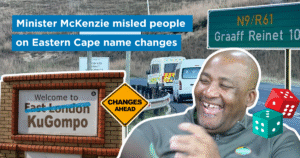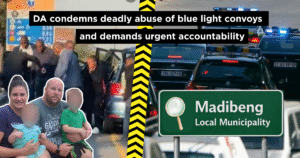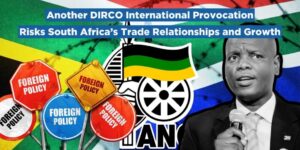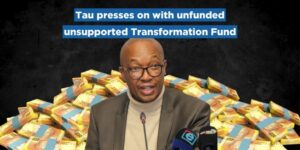- The catastrophic error will result in higher electricity tariffs.
- This debacle exposes deep institutional rot at NERSA.
- DA calls for reconstitution of NERSA board with competent professionals.
The Democratic Alliance (DA) has today formally referred the National Energy Regulator of South Africa (NERSA) to the Public Protector for investigation into what can only be described as one of the most staggering regulatory failures in recent memory — a R54 billion “bungle” in the calculation of Eskom’s electricity tariffs under the Sixth Multi-Year Price Determination (MYPD6).
This catastrophic error, admitted to in writing by NERSA’s own Chairperson, will directly result in higher electricity tariffs for every South African household and business — with increases now projected at 8.76% in 2026/27 and 8.83% in 2027/28.
The DA is outraged by this bungle, as South Africans already face cost-of-living crisis, due to exorbitant electricity costs. We will not stand idly as Eskom and NERSA continue to rip the country off.
In a letter to me dated 4 September 2025, NERSA Chairperson Thembani Bukula concedes that:
A clerical “version control” error resulted in a R14.5 billion miscalculation in Eskom’s Generation depreciation allowance.
A further R20 billion correction was required due to the incorrect application of the methodology for transferring assets from “work under construction” to commercial operation.
The Depreciated Replacement Cost rule was incorrectly applied in Generation, using zero balances instead of rolling forward prior-year values — an error not made in Transmission or Distribution.
These are not minor oversights. They are fundamental breaches of the regulator’s core mandate to ensure accurate, lawful, and transparent tariff determinations.
Instead of defending its decision in court, NERSA chose not to oppose Eskom’s judicial review and quietly settled for an additional R54 billion in allowable revenue over the MYPD6 period. This deal was struck behind closed doors, without any public consultation, despite the fact that it will directly impact the cost of living for millions of South Africans.
The Portfolio Committee presentation on 10 September confirmed that NERSA knew of the error before finalising its decision in January 2025 — yet failed to correct it before publishing the Reasons for Decision in June. This is a textbook case of maladministration. Furthermore, the leadership of NERSA has “passed the buck” – blaming employees and failing to take ownership of their own role in approving an incorrect determination without verifying its correctness.
This debacle exposes deep institutional rot at NERSA:
Governance failure: Multiple layers of review failed to detect or correct the error before the decision was finalised.
Transparency deficit: The public was excluded from a decision that will cost them billions.
Capacity gaps: NERSA’s own remedial plan admits to skills shortages, weak quality assurance, and outdated regulatory tools.
The DA has long warned that South Africa’s electricity pricing regime is fundamentally broken — opaque, inflationary, and stripped of the principles of affordability and accountability that should guide it. The R54 billion debacle at NERSA is not an isolated blunder; it is the clearest evidence yet that the system is failing the very people it is meant to protect.
We need a regulator fit for purpose in a modern energy economy — one that replaces outdated mechanisms like the MYPD and RCA with forward‑looking, performance‑based regulation benchmarked against the best in the world. We need tariff decisions that put consumers first, underpinned by statutory affordability thresholds and rigorous socio‑economic impact assessments.
And we need to rebuild NERSA itself — reconstituting its board with independent, technically qualified professionals and filling vacant posts without delay — so that it can once again command public trust and carry out its mandate with competence, transparency, and integrity. South Africans deserve nothing less.




